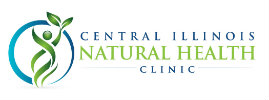Miracles of modern medicine, antibiotics have saved countless lives over the past century. It is well-known that these wonder drugs have become overused in recent decades, leading to the development of antibiotic-resistant “super bugs,” such as MRSA (methicillin-resistant Staphylococcus aureus). Our quick-fix society has brought this about by running to the doctor with every cough, stuffy sinus, and earache, and demanding a prescription. This trend has led some to fear that we could be nearing the end of the antibiotic era, with no effective substitutes on the horizon for truly life-threatening infections.
In addition to this population-wide problem, antibiotics affect us negatively on the individual level as well. It has long been known that antibiotic use in infancy increases the risk of developing asthma. A new study out of Denmark recently found that antibiotic exposure in adulthood increases the risk of developing type 2 diabetes. This was not a small study – the researchers looked at over 5 million people over a 12-year period. Their conclusion? Those with the most antibiotic prescriptions over that time (more than 4) led to a fifty-three percent increased risk of diabetes, compared to those with 0 or 1 antibiotic treatment. The mechanism is not known, but it is thought that the disruption of our body’s beneficial bacteria could be the culprit. This makes sense, considering that the most common risk factor for diabetes is obesity, and obesity may also be associated with a disruption in our normal flora.
Type 2 diabetes is an epidemic in our society, with the prevalence growing dramatically. Think about this the next time you have a sniffle – is there something natural you can do instead? Think about herbs ranging from Andrographis to goldenseal, nutrients such as vitamin C and zinc, and prevention in the winter by testing your blood levels of vitamin D to make sure they’re up to par.
Reference:
Mikkelsen KH, Knop FK, Frost M, et al. Use of antibiotics and risk of type 2 diabetes: a population-based case-control study. JCEM. August 27, 2015 [epub ahead of print]. DOI: http://dx.doi.org/10.1210/jc.2015-2696.
